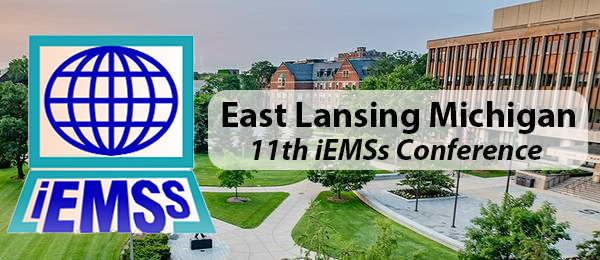Keywords
resilience; climate change adaptation; transformation; leverage points; coastal governance
Start Date
7-7-2022 2:20 PM
End Date
7-7-2022 2:40 PM
Abstract
Enhancing the resilience of complex coastal social-ecological systems (SES) to climate change requires transformative changes. Yet, there are knowledge gaps on how best to achieve transformation. In this presentation, we propose a conceptual framework for assessing governance performance in SESs and identifying leverage points - where a small shift may lead to transformative changes in the system as a whole - for improving governance performance to enhance climate resilience. The conceptual framework combines three different methods: measurement of different forms of capitals (capitals approach), Fuzzy Cognitive Mapping (FCM) and a leverage points analysis. Governance processes contributing to different forms of capital are described as nodes of the SES and their performance is independently assessed. The FCM is then used to map the connectivity (relationship) between nodes. Finally, leverage points are identified based on centrality and performance. Centrality is assumed to enhance performance and strength of the system, and thus enhance climate resilience. We apply the conceptual framework in a coastal case study in Algoa Bay, South Africa and discuss its broader applicability and implications. Case study results implicate several leverage points for improving governance performance and establishing/strengthening connectivity between nodes. Leverage points include improved political support for climate adaptation from the Provincial Government, more participation in implementation of climate action plans, and better access to relevant climate information. We also show that a better integration (strengthened connectivity) between climate adaptation planning and coastal governance is needed to enhance climate resilience in the case study area. The proposed framework advances methodological and theoretical knowledge on how to identify leverage points for enabling transformations towards climate resilience and broader sustainability goals.
Identifying leverage points to enhance climate resilience in coastal social-ecological systems
Enhancing the resilience of complex coastal social-ecological systems (SES) to climate change requires transformative changes. Yet, there are knowledge gaps on how best to achieve transformation. In this presentation, we propose a conceptual framework for assessing governance performance in SESs and identifying leverage points - where a small shift may lead to transformative changes in the system as a whole - for improving governance performance to enhance climate resilience. The conceptual framework combines three different methods: measurement of different forms of capitals (capitals approach), Fuzzy Cognitive Mapping (FCM) and a leverage points analysis. Governance processes contributing to different forms of capital are described as nodes of the SES and their performance is independently assessed. The FCM is then used to map the connectivity (relationship) between nodes. Finally, leverage points are identified based on centrality and performance. Centrality is assumed to enhance performance and strength of the system, and thus enhance climate resilience. We apply the conceptual framework in a coastal case study in Algoa Bay, South Africa and discuss its broader applicability and implications. Case study results implicate several leverage points for improving governance performance and establishing/strengthening connectivity between nodes. Leverage points include improved political support for climate adaptation from the Provincial Government, more participation in implementation of climate action plans, and better access to relevant climate information. We also show that a better integration (strengthened connectivity) between climate adaptation planning and coastal governance is needed to enhance climate resilience in the case study area. The proposed framework advances methodological and theoretical knowledge on how to identify leverage points for enabling transformations towards climate resilience and broader sustainability goals.



Stream and Session
false